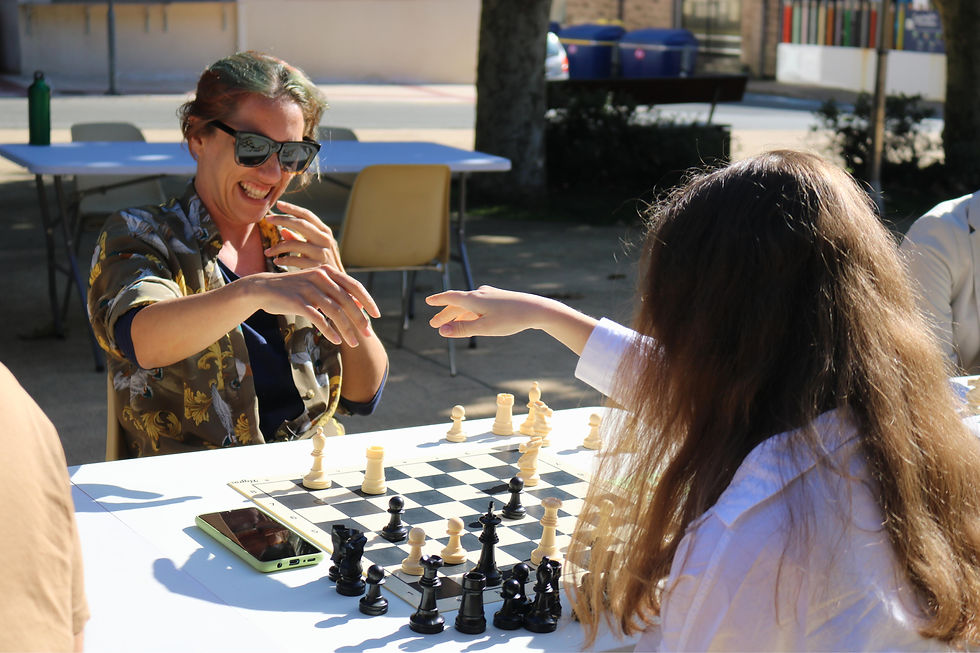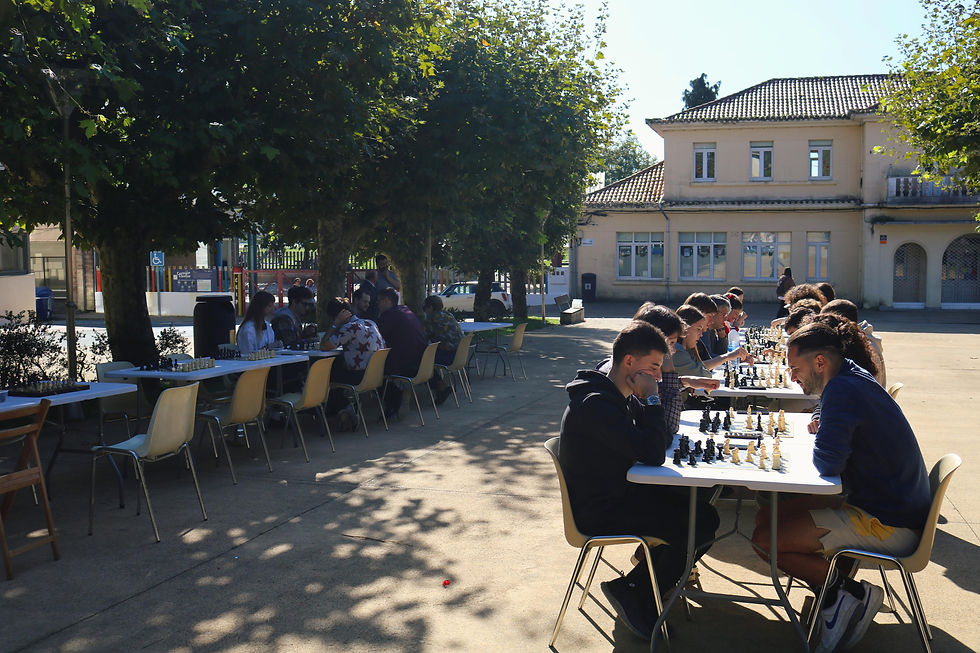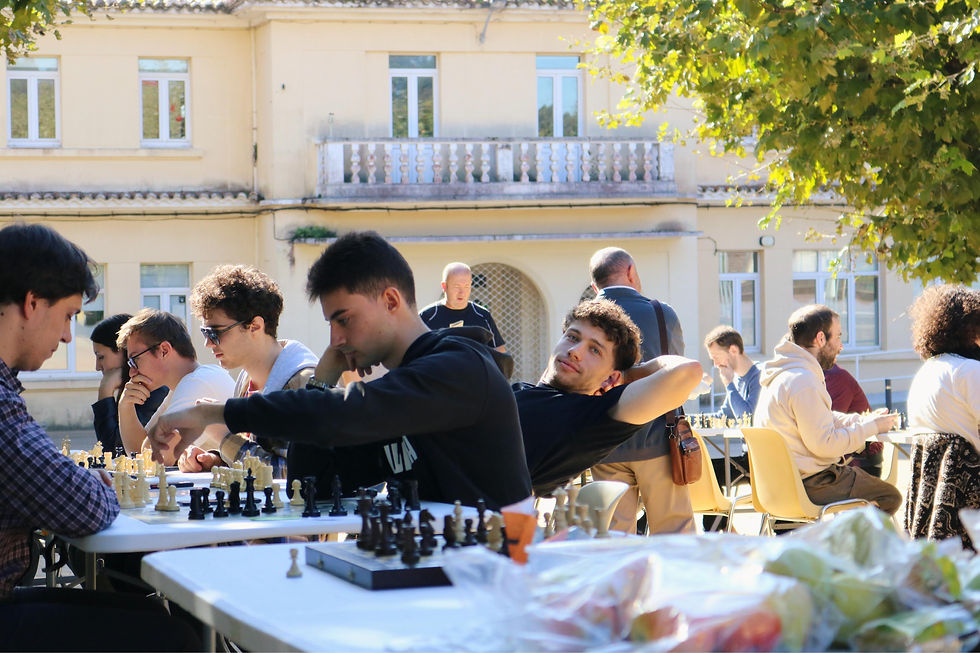Chess for Inclusion ♟️
- Ethos MTÜ

- Mar 14, 2025
- 3 min read
Some time mid November five participants from Estonia reached the town of Narón on the Galician northwestern coast. This small town welcomed them for an Erasmus+ project centered around the game of chess, which for thousands of years has been a bridge between people transcending languages and cultures.


Likewise in Narón young people from all corners of Europe sat down to test their skill against each other as well as other chess enthusiasts from the local chess club. The results were fascinating, because besides wins, losses, and draws participants took with them fond memories of the time they spent in Galicia hanging out with each other, playing interactive games, hiking in the woods, swimming in the waterfall, exchanging languages, and learning more about other cultures and more about themselves.

The project consisted of 24 participants from five different countries. Along with host country Spain the other countries represented were Italy, Estonia, Moldova, Bosnia and Herzegovina. About 70% of participants were male, which shows that it is still a sport with far bigger male representation — an issue that was discussed during one of the debates.


The skill level varied quite a bit, from advanced players who can name different openings to recently introduced to the game enthusiasts. Everyone found a worthy competitor and more skilled players shared their knowledge of the game with new players, enhancing their skill and improving their knowledge of the game.

One day the participants were accompanied by the members of a local chess club, playing outside in the sunny Narón six blitz matches. The chess club had few members, yet the sheer fact of it existing in a small village proves once more how universal the game is.

Besides chess, participants found that there were far more they had in common in addition to the game. In the free time one could see people playing table tennis, having a walk around the area, or having discussions on multiple different topics ranging from culture, sports, politics, history to science, religion, philosophy, or sharing stories far into the late night hours.

To understand each other even better, a series of cultural nights were organised each evening, with participants in a free manner presenting their countries. Highlights of Moldovan history, Bosnian landmarks and cultural sights, a tour through Estonian modern cinema, a knowledge test about Italy, and dances with Spanish classic pop tracks were accompanied with sweets and foods from each country.

Activities weren't limited within Narón, and on a day off participants had the chance to explore the vicinity or visit the nearby port city of Ferrol. Certainly one of the biggest highlights of such outings was a visit to the waterfalls. About one hour walk from Narón with road stretching through the city, winding along the rivers and cutting through the fields, taking hikers up the hill into a thick green forested area and hiding in the depths of it was a large waterfall with three pools at its drop. An obligatory series of photos: individual, group, and just the scenery in its magnificence. Some who were braver climbed the slippery rocks, and even braver yet dived into the pools and swam in the chilly waters, until the twilight hinted that the time was ripe for heading back to get a tasty evening meal.

The food at the project was covered by local restaurants which served traditional Spanish gastronomy like meatballs, fried potatoes, fresh tomato salad, stews, vegetable soup, bean soup, egg-potato dish tortilla, grilled meat, and different cakes for dessert. Many of the dishes tasted familiar to the participants, which yet again shows how close are the distant nations to each other, connected by similar food ingredients and ideas how to cook them.

Another memorable activity to be mentioned was the short video clip competition. Participants were divided into groups of four and five and were given a task to make a video promoting chess. The results were very diverse highlighting the creativity and talent of the participants. What's most astonishing is the short time span within which the works were done along with the quality of the videos. Some were humorous, some very artistic, others more dramatic, but all of them did not fail to impress.


One week is a short time to spend in a good company in a lovely place. It is a sad moment to pack one's stuff and head over to the airport for a long trip back home. But the memories and friendships remain with hopes of having a chance to meet again.
Text: Lev Savinov






Comments